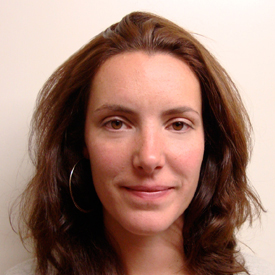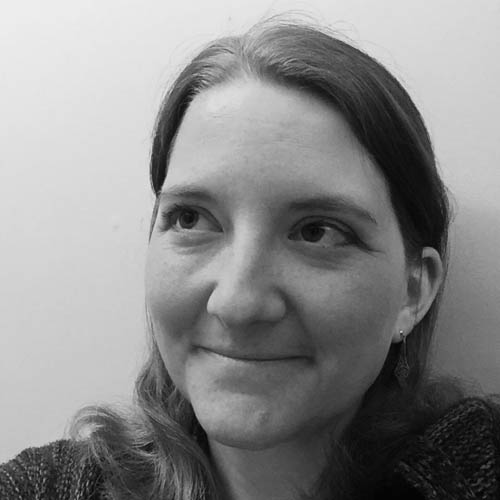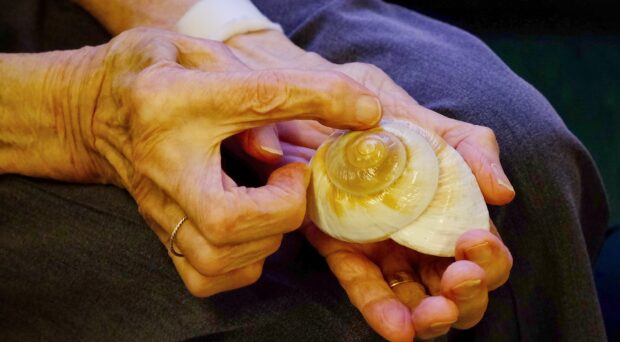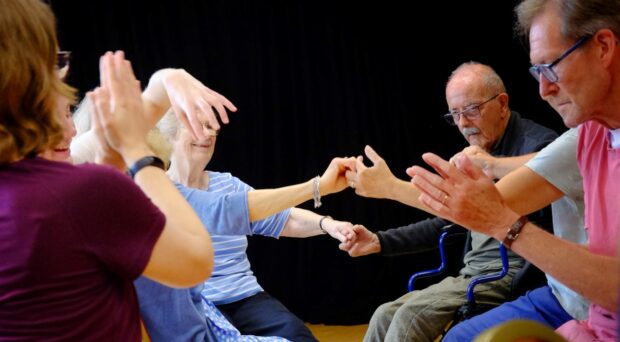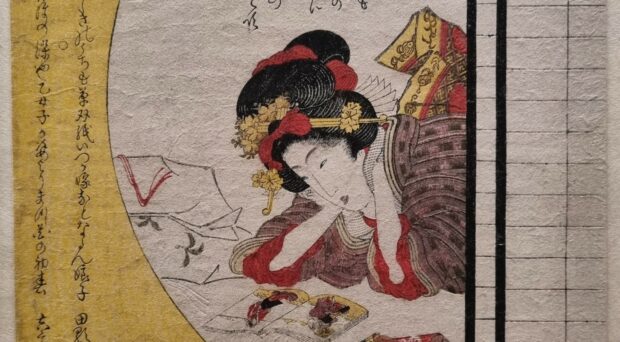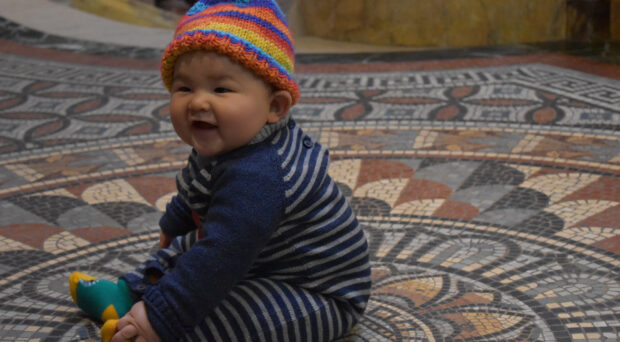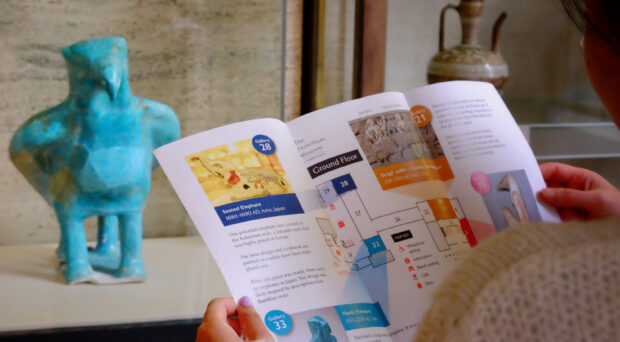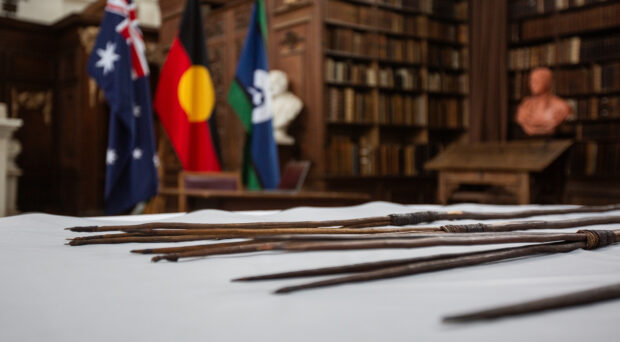After six months of reflection and writing about the University of Cambridge Museums Nursery in Residence, we are excited to be able to share the findings of our collaborative, practitioner-led research project.
‘Stand aside for a while and leave room for learning, observe what children do, and then, if you have understood it well, perhaps teaching will be different from before.’ – Loris Malaguzzi
In October 2017, nine children from a Cambridge City Nursery spent five consecutive mornings ‘In Residence’ at the Fitzwilliam Museum and Cambridge University Botanic Garden. The residency formed the basis of a multi-disciplinary practitioner-led research project by a team of museum, garden and nursery practitioners. We hoped that the residency would give us the opportunity to ‘stand aside for a while and leave room for learning’, as Malaguzzi describes above. We hoped to develop a better understanding of what the museum and garden offers to young learners by working in partnership to create opportunities for them to explore our spaces and collections. We were also interested in sharing and developing good practice within each of our settings.

What did we discover about working with young children in the Fitzwilliam Museum and Botanic Garden?
- The project enabled adult and child participants to work together to create knowledge about places, spaces, objects, and collections. Meanings were actively constructed and enacted in a variety of different ways, using bodies, movement, words, and touch.
- As the children developed confidence over the course of the residency, they also demonstrated a growing sense of ownership and belonging within our spaces.
- The case studies revealed that even the very youngest children care deeply about museum and garden collections. There are many examples within the data we collected of children forming deep and personal connections with the objects they encountered. They also demonstrated a sensitivity to issues of display, preservation and conservation.
- Transitional objects such as learning journals, sketchbooks and small world toys enabled children and practitioners to make links and build bridges between the different settings.
- The project gave us the space and time to allow children to respond to their experience in many different ways. However, it also highlighted the many contradictory messages that we give about freedom and control within the museum and garden environment.
How did the project extend and develop professional practice in the different settings?
- The case studies enabled us to identify challenges and contradictions within our practice which might have otherwise gone unnoticed. This highlighted the potential of detailed empirical research of this kind to help practitioners to acknowledge their blind spots.
- The nursery staff took ideas and approaches they observed as part of the residency back to their setting so that other children could experience and benefit from them.
- Although the focus of the project was on a small group of children, the impact on the practitioners and University of Cambridge Museums (UCM) learning programmes promises a wider impact. It will be interesting to reflect on this in the future.
- The writing up process has enabled us to engage in professional dialogues with educators from multiple disciplines and also to understand how our work relates to current academic thinking in this area.
- This project has enabled us to better understand and articulate the potential of collaborative practitioner-led research in informal learning contexts. This represents a significant area for future development.
What next?
This project points the way for the potential of gardens and cultural providers to support the education sector to develop a creative, embedded and community-led approach to professional and curriculum development. Feedback from the nursery practitioners demonstrated how they had been inspired and refreshed by the project. Sabbatical placements are one of the suggestions put forward in a recent government consultation (Department of Education, 2018) about how to improve teachers’ professional career development. We would like to make the case for other practitioners and children to have the opportunity to undertake projects of this kind. We were extremely privileged to have been given the opportunity to work with a small group of children in such an in depth and sustained way. Although we acknowledge the limitations of our project, the residency provided the project team with the opportunity to step back, to observe and to think deeply about our practice. The process of discussing, reflecting and writing has taken over six months to complete. All members of the project team have been actively involved in commenting on and contributing to the end of project report. This experience will now inform the development our training programmes for practitioners from different settings.

The case studies remind us that young children are capable and intelligent citizens who have important contributions to make to our shared spaces and places. As specialist educators and practitioner researchers we are in a unique position to witness and document the complex, multi-dimensional creative learning that takes place in shared informal learning spaces. We hope that this project demonstrates that young children have an important contribution to make as citizens now, not just as adults of the future. This extended residency has enabled us to pause and take note of children’s multiple voices and perspectives and in so doing offer enable them to contribute to and develop the ways in which we work with our collections. Young children can and should be given opportunities to take an active and participatory role within our museums and collections.

We have been awarded some funding from the University of Cambridge ESRC (Economic and Social Research Council) Impact Acceleration Account to enable us to develop ideas for future residencies and practitioner-led research at the UCM and other informal learning settings. Over the next few months, we look forward to continuing to discuss and reflect on the residency project as we share our findings with national and international colleagues. Keep an eye out for Nicola at the European Early Childhood Education Research Association Annual Conference in Budapest. Flis and Bronwen will be going to the 10th International Congress on Education in Botanic Gardens in Warsaw.
If you are interested in finding out more or getting involved with the next stage of the project, please contact Kate Noble.



